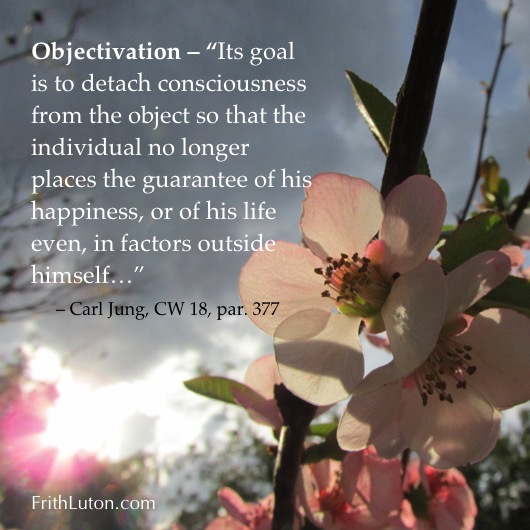Objectivation. A process of differentiating the ego from both other persons and contents of the unconscious. (See also active imagination.)
Its goal is to detach consciousness from the object so that the individual no longer places the guarantee of his happiness, or of his life even, in factors outside himself, whether they be persons, ideas, or circumstances, but comes to realize that everything depends on whether he holds the treasure or not. If the possession of that gold is realized, then the centre of gravity is in the individual and no longer in an object on which he depends. [“The Tavistock Lectures,” CW 18, par. 377.]
Jung pointed out that the “treasure” has traditionally been projected onto sacred figures, but that many modern individuals no longer find satisfaction in such historical symbols. They therefore need to find an individual method to “give shape” to the personal complexes and archetypal images.
For they have to take on form, they have to live their characteristic life, otherwise the individual is severed from the basic function of the psyche [compensation], and then he is neurotic, he is disorientated and in conflict with himself. But if he is able to objectify the impersonal images and relate to them, he is in touch with that vital psychological function which from the dawn of consciousness has been taken care of by religion. [Ibid., par. 378.]
© from Daryl Sharp’s Jung Lexicon, reproduced with kind permission of the author.
